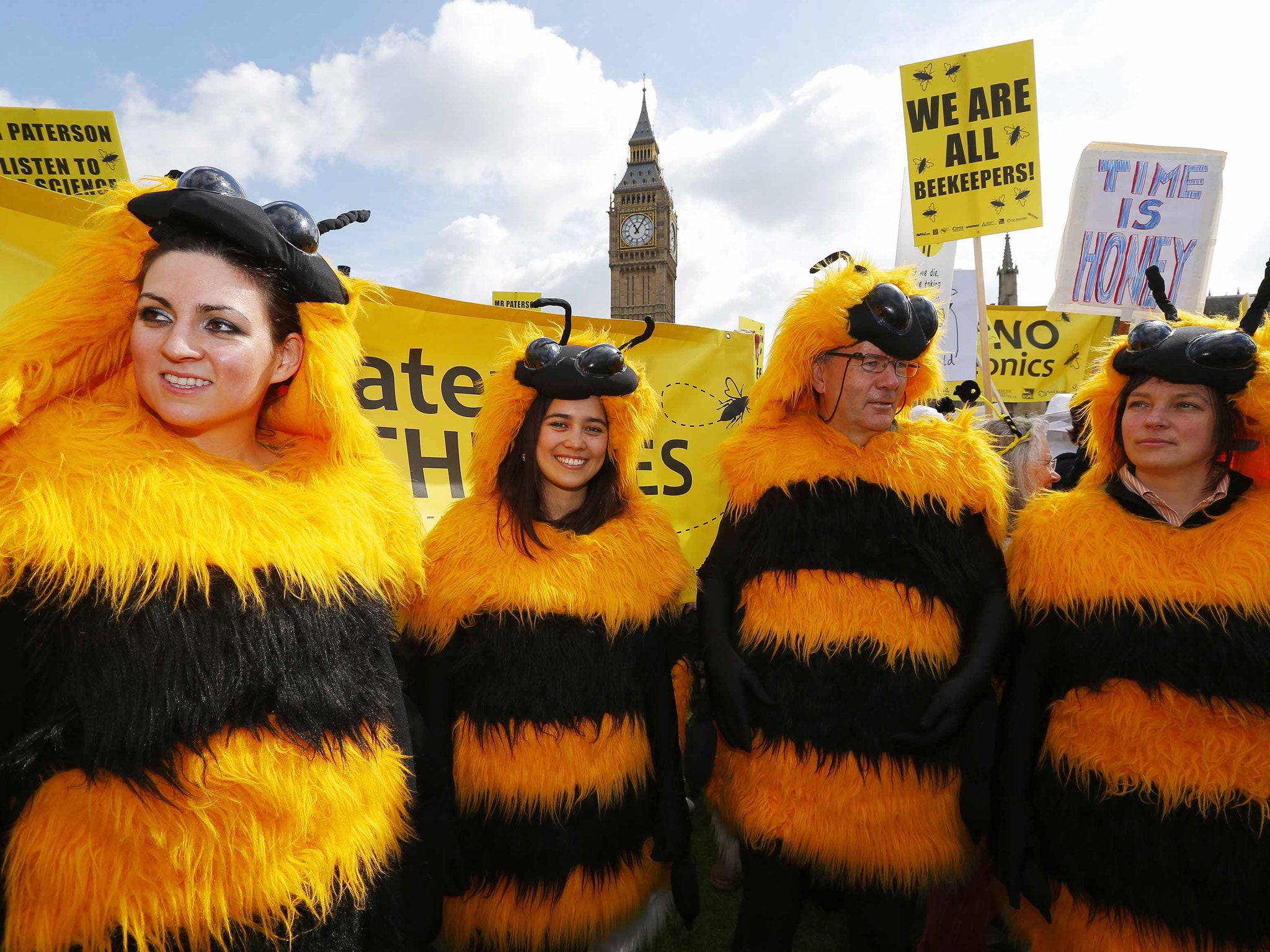Exclusive: Pesticides ban makes it a triple whammy for farmers
EU action on bees comes on top of huge losses and the coldest March for 50 years

Britain’s long-suffering farmers will see their costs soar by £200m a year after the European Union voted this week to ban nerve-agent pesticides blamed for causing mass die-offs in bees, the National Farmers’ Union (NFU) has claimed.
The cost of alternative methods to protect crops against pests will largely be borne by wheat and oilseed rape farmers and is part of a triple whammy for farmers as a disastrous 12-month cycle of poor weather continues to cast a shadow over the industry.
It also emerged that the second-wettest year on record wiped £737m off British farmers’ collective profits in 2012, as the heavy rain damaged crops. And the coldest March for more than half a century has ensured that the farming industry’s profits will fall again this year, Phil Bicknell, the NFU’s chief economist, warned. “Looking at 2013, we expect to see profits squeezed again. Although we took a tremendous step forward in spring planting in April as the weather improved, it had been terrible up to the end of March, so there are still a number of concerns surrounding crops in the UK,” he said.
Nearly a third of Britain’s winter oilseed rape crop has failed or remains of “questionable viability”, while up to 40 per cent of the winter wheat crop is less developed than it should be at this time of the year, the Agriculture and Horticulture Development Board said.
The EU voted on Monday to ban three nerve-agent pesticides for two years from December unless new evidence to the contrary becomes available.
Known as neonicotinoids, these nerve agents are typically used to treat the seeds of the crops rather than their foliage, removing the need to spray them in the field.
But whichever pesticides replace the nerve agents, they will not be of a type that can be used to treat the seeds and will need to be sprayed on the fields, adding further to the cost of the switch, according to Dr Chris Hartfield, the NFU’s lead expert on bee health.
He puts the cost of replacing neonicotinoids for wheat and oilseed rape at up to £200m and predicts that the eventual cost to farmers is likely to be higher because alternative pesticides would be older and less effective.
The ban comes after more than 30 separate scientific studies have linked neonicotinoids to a dramatic decline in the bee population, although the findings are disputed by many, and other factors such as habitat loss and parasites are acknowledged to have played a role in the bees’ decline.
In January, the European Food Safety Authority (EFSA) published a scientific opinion recommending that the three main substances – imidacloprid, clothianidin and thiamethoxam – should not be used on crops attractive to bees, although the report did not definitively prove the link.
Paul de Zylva, senior campaigner at Friends of the Earth, said: “A world without bees would cost UK farmers £1.8bn a year to pollinate crops by hand, as they are now having to do in parts of China and India”, citing research from the University of Reading.
But Dr Hartfield said the evidence for a ban isn’t conclusive: “We need to take action we know will benefit bee health. When you look at the evidence, it doesn’t support the premise that the ban will benefit bee health.”
Join our commenting forum
Join thought-provoking conversations, follow other Independent readers and see their replies
Comments